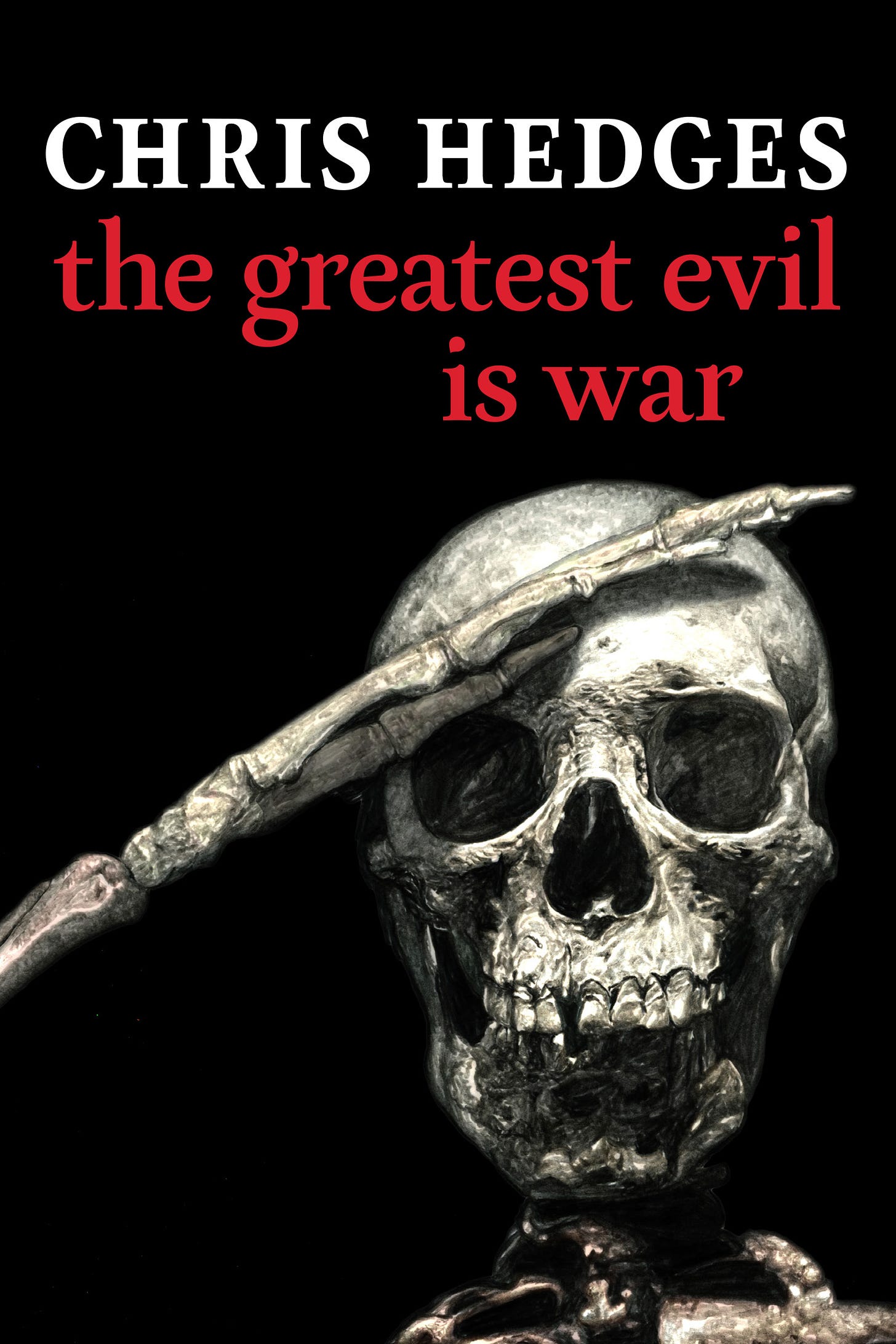My War Never Ends
This article also appeared today on TomDispatch
Cover Design by Mr. Fish
[Note for TomDispatch Readers:
Chris Hedges’s first book, War Is a Force That Gives Us Meaning, blew me away years ago. Now, his latest book, The Greatest Evil Is War, on the nightmare that so eternally seems to have him (and us) in its grip, has just been published. My own copy arrived only a day ago and went instantly to the top of my must-read pile. Let me just quote two writers this site’s readers know well on it. Noam Chomsky says, “Chris Hedges has been an incomparable source of insight and understanding, both in his outstanding career as a courageous journalist and in his penetrating commentary on world events. This is a contribution of great significance in these troubled times.” And Andrew Bacevich adds, “Savage honesty is a hallmark of everything Chris Hedges writes. Other writers seek to comfort or distract; his purpose is to agitate, unsettle, and demand moral accountability. The Greatest Evil Is War is no exception, which is precisely why every American should read it and reflect on its disturbing message.”
War is, to say the least, nothing new. In his memorable first book, War Is a Force That Gives Us Meaning, Chris Hedges began with a possible quote from Plato (“Only the dead have seen the end of war”). And it’s sadly true that, since Plato’s time, we’ve never seen its end. Our world, in fact, continues to be wracked by it — in Syria, Yemen, Somalia, and elsewhere — but especially, of course, in the region that, for so much of our history might have been considered the heartland of war: Europe. You would think that, after all these endless centuries, we might have a little more sense, but no such luck. Let me just say that — best guess — Plato would not have been surprised by the war in Ukraine.
I read that initial book of Hedges’ when it came out in 2002 and was both stunned and moved by it. Two decades later, even though you’re about to read his latest piece on war, I can’t resist letting his younger self introduce it. Here’s a passage from early in that initial account he wrote, after years of reporting on war for the New York Times, among other places:
War and conflict have marked most of my adult life. I began covering insurgencies in El Salvador, where I spent five years, then went on to Guatemala and Nicaragua and Colombia, through the first intifada in the West Bank and Gaza, the civil war in the Sudan and Yemen, the uprisings in Algeria and the Punjab, the fall of the Romanian dictator Nicolae Ceauşescu, the Gulf War, the Kurdish rebellion in southeast Turkey and northern Iraq, the war in Bosnia, and finally to Kosovo. I have been in ambushes on desolate stretches of Central American roads, shot at in the marshes of southern Iraq, imprisoned in the Sudan, beaten by Saudi military police, deported from Libya and Iran, captured and held for a week by Iraqi Republican Guard during the Shiite rebellion following the Gulf War, strafed by Russian Mig–21s in Bosnia, fired upon by Serb snipers, and shelled for days in Sarajevo with deafening rounds of heavy artillery that threw out thousands of deadly bits of iron fragments. I have seen too much of violent death. I have tasted too much of my own fear. I have painful memories that lie buried and untouched most of the time. It is never easy when they surface.
Today, in his first piece in years for TomDispatch, Hedges, author of the new book The Greatest Evil Is War, who now has his own Substack where he writes regularly, returns in a deeply personal way to war in his time. Tom





Geen opmerkingen:
Een reactie posten